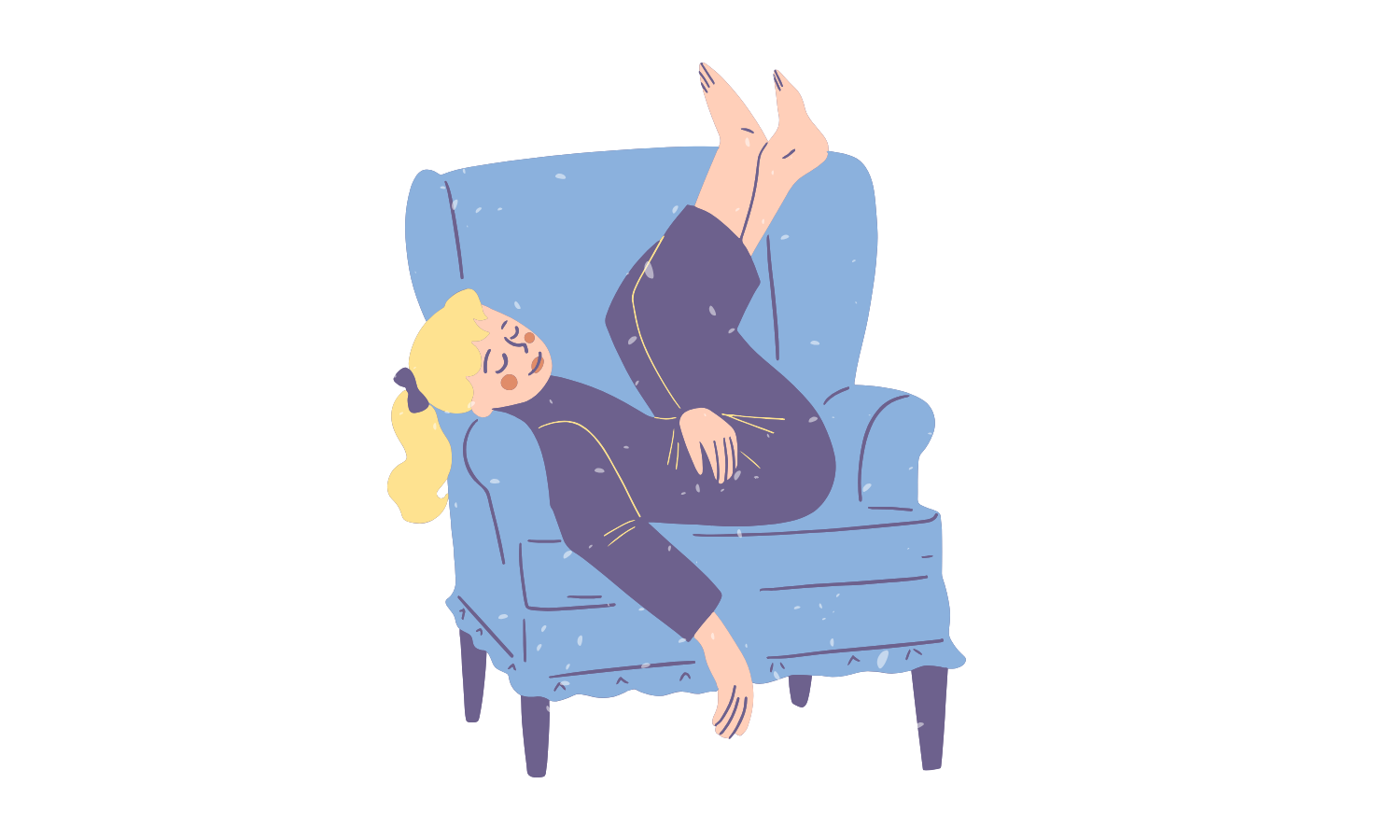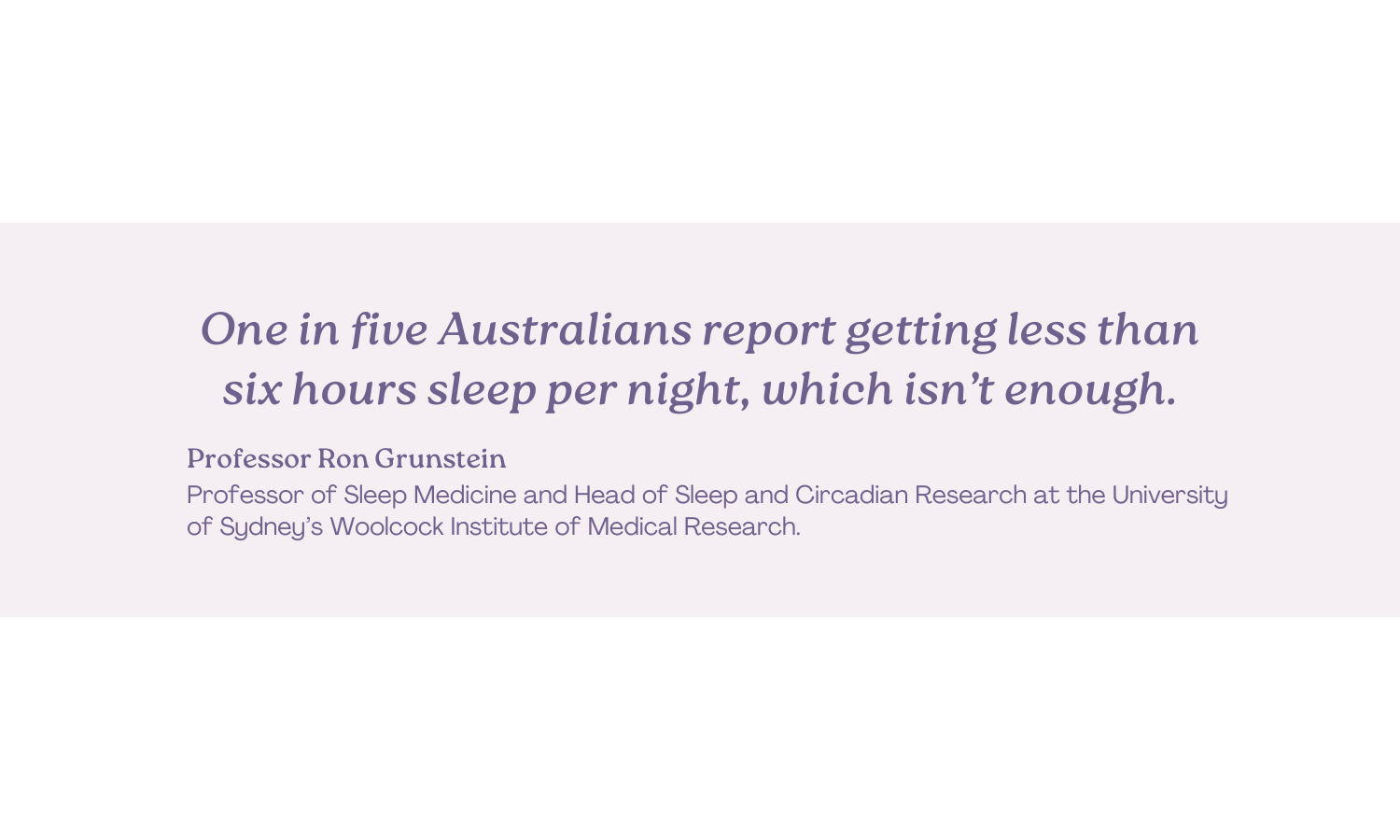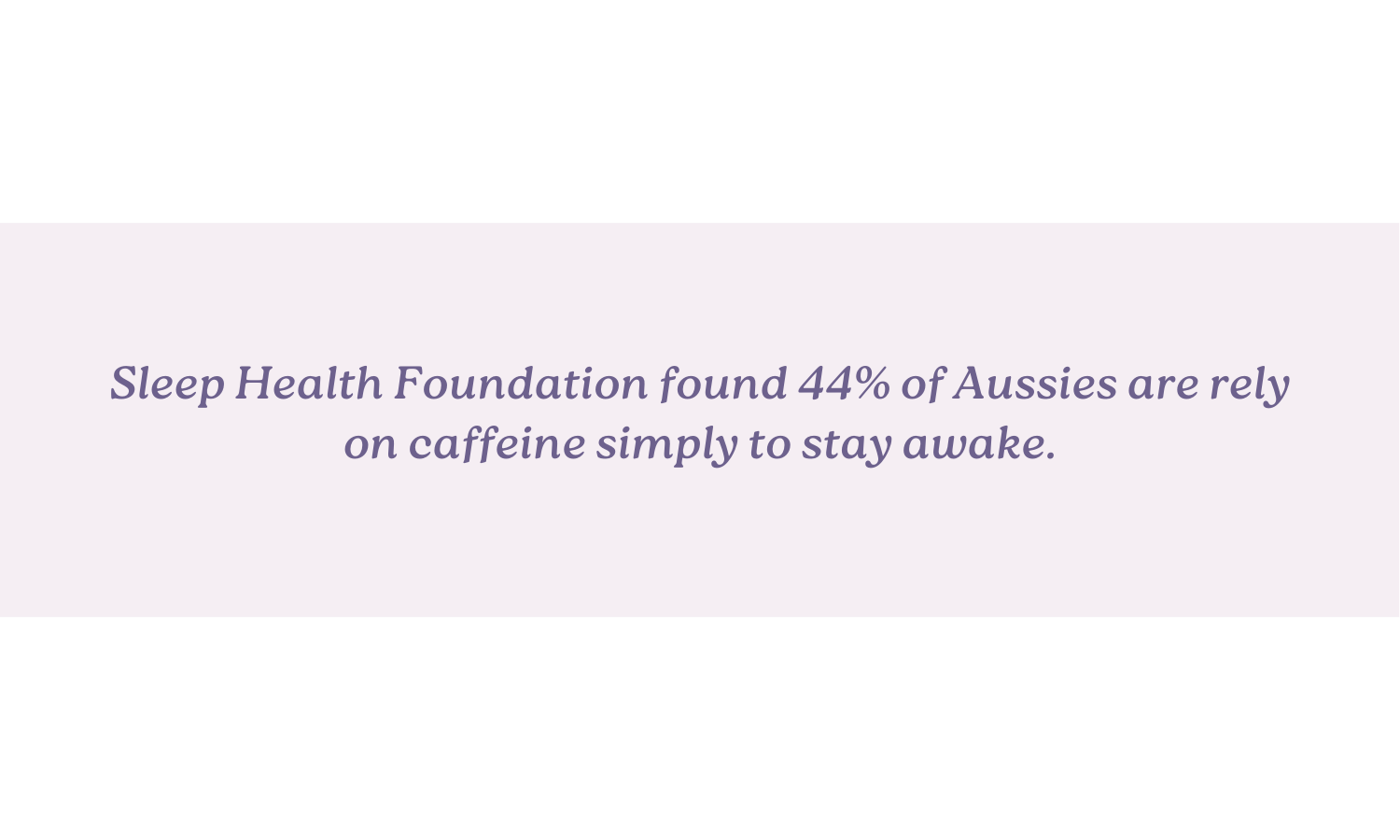Catching Z's: A guide to healthy sleep habits in 2024
Hey there, sleep seekers! As we embark on another journey around the sun, it's time to talk about something that's essential to our well-being yet often overlooked: sleep. In the wake of World Sleep Day on March 15, the spotlight is on the importance of healthy sleep habits and their impact on our physical and mental health.
But this year, sleep isn't just a matter of getting some shuteye; it's become a pressing concern, even a crisis, for many Australians. With a staggering 47% increase in financial stress, sleep disturbances are on the rise, according to the Australian Institute of Health and Welfare. It's clear: prioritising sleep is no longer a luxury—it's a necessity for a healthier, happier life.
Why should we put sleep at the top of our to-do list this year?
Just like maintaining a balanced diet or hitting the gym regularly, getting enough sleep is crucial for our overall well-being—both physically and mentally.
Despite its importance, sleep often takes a backseat in our busy lives. Shockingly, statistics show that a 4 out of 5 Aussies are getting less than 6 hours of sleep per night and 4 out of 10 Aussies regularly struggle with inadequate sleep—a trend that needs urgent attention in 2024.
While it may seem like a minor inconvenience, insufficient sleep can have serious consequences on our health and wellness.
Estimated overall cost of sleep disorders in Australia
In 2019-2020, it's estimated that sleep disorders in Australia cost a total of $35.4 billion. This includes costs related to obstructive sleep apnea (OSA) at $13.1 billion, insomnia at $13.3 billion, and restless legs syndrome (RLS) at $9.0 billion. Among these costs, the financial component amounted to $10.0 billion, covering expenses such as healthcare ($0.7 billion), productivity loss ($7.7 billion), informal care ($0.2 billion), accident-related costs ($0.4 billion), and deadweight losses ($1.0 billion). On average, individuals affected by moderate to severe OSA syndrome, unrelated insomnia, and RLS incurred financial costs of approximately $16,717, $21,982, and $16,624 per person, respectively, for the year. Additionally, there were non-financial costs totalling $25.4 billion.
SOURCE: National Library of Medicine
Lana Hambilton, Head of Health Insurance at Compare the Market
Four main stages that compose a typical sleep cycle
First is the transition stage from wakefulness to sleep, where you start to relax. It's like a gentle wave of relaxation washing over you, bringing calmness, openness, and creativity.
Next is the dreamy twilight stage. Here, you become less aware of your surroundings as your breathing and heart rate regulate, your body temperature lowers, and your eye movement decreases.
Then comes the restorative deep sleep phase. Muscles relax completely, blood pressure and breathing rate drop, and the deepest sleep occurs during this stage.
Finally, there's rapid-eye movement (REM) sleep. This is when the brain becomes active with mental activity, but the body remains still. Dreaming happens here, along with rapid eye movement.
A typical sleep cycle lasts for about 90-120 minutes in adults. Depending on your total sleep duration, you'll go through several cycles each night.
You might be wondering if it's possible to change sleep habits. It absolutely is! With a deliberate plan and consistent effort, you can significantly improve your sleep health over 4-6 weeks.
SOURCE: Zurich
Rise and shine, baby!
Tossing and turning all night? Finding yourself groggy every morning? Transforming your sleep habits could be the key to unlocking a more rejuvenating slumber. Dive into these simple strategies to upgrade your sleep game in 2024...
Revamp your sleep routine
Consistency is key! To set the stage for a good night's rest, aim to hit the hay and rise at the same time each day, even on weekends. This regularity helps sync your body's internal clock, promoting better sleep quality.
Create a sleep-inducing haven
Turn your bedroom into a sleep sanctuary. Keep it cool, dark, and quiet to promote better rest. Invest in quality bedding, including a comfortable mattress and pillows, and consider using a sleep mask to block out any remaining light.
Ditch the screens
The blue light emitted by devices like smartphones, tablets, and computers can mess with your body's natural sleep rhythms. Aim to power down electronics at least an hour before bedtime to give your brain a chance to unwind.
Exposure to blue light in the hours leading up to bedtime can disrupt sleep. Blue light suppresses the body’s release of melatonin, a hormone responsible for making us feel drowsy. While beneficial during the day for promoting wakefulness, blue light becomes problematic at night when we're trying to wind down. This exposure can deceive our brains into believing it's still daytime, throwing off our circadian rhythms and keeping us feeling alert instead of tired.
Watch what you eat and drink
Watch what you consume close to bedtime. Heavy meals, caffeine, and alcohol can disrupt your sleep patterns, making it harder to drift off and stay asleep. Opt for lighter snacks and herbal teas in the evening to promote better rest.
Catch some sunlight!
Research indicates that exposure to natural light, especially in the morning, can enhance sleep quality later in the day. Here's why: Sunlight influences melatonin production, a key player in regulating your sleep-wake cycle. When you're exposed to natural light, it signals to your brain that it's time to be awake and alert, leading to a decrease in melatonin levels. As evening approaches, approximately two hours before bedtime, your melatonin levels start to rise again, triggering feelings of drowsiness.
Get moving regularly
Get moving for better sleep! Regular physical activity can help you fall asleep faster and enjoy deeper, more restorative sleep. Aim for at least 30 minutes of moderate exercise most days of the week but try to avoid vigorous workouts too close to bedtime.
Stress less, sleep better
Ease into bedtime with relaxation techniques. Deep breathing exercises, meditation, or gentle yoga can help calm your mind and body, making it easier to transition into sleep. Managing stress before bed sets the stage for a more peaceful night's rest.
As we gear up for the year ahead, let's not gloss over the importance of a solid night's sleep. With sleep issues on the uptick and the real impact of sleep disorders on our overall health, making sleep a priority is more crucial than ever. And hey, if you suspect you're dealing with a sleep disorder, don't hesitate to chat with a healthcare pro for some help. It's time to kickstart our journey to better health, and it all starts with a good night's rest. Cheers to catching those Z's!










